Western Australia Can’t Wait [for a Decommissioning Hub]
The Northern Endeavour FPSO is being shipped by a Chinese heavy lift ship from Australia to Denmark for recycling.
Installed between the Laminaria and Corallina oil fields in the Timor Sea and unproductive since 2019, its fate became the burden of the Australian government after it underwent a string of ownership changes.
Australia doesn’t have the recycling facilities needed for the job, although the government has been taking some action on the issue. It published a decommissioning roadmap in 2024 and has set up an Offshore Decommissioning Directorate.
The Australian Marine Complex in Henderson, Western Australia (WA), has previously been flagged as the most promising site for a decommissioning hub, but, says local environmental organizations and unions, along came AUKUS.
“In late 2024, the federal government announced that Henderson would be developed as a base for servicing nuclear-powered submarines under the AUKUS security agreement. A three-year feasibility study was launched, with headlines promising up to 10,000 high-skilled jobs. Critics have questioned the credibility of these figures, but one thing is clear, Henderson’s role as the centerpiece of Australia’s decommissioning industry is in serious doubt.”
That’s the view expressed in a new report WA Can’t Wait, a collaboration between Greenpeace Australia Pacific, Unions WA, Conservation Council WA, Maritime Union of Australia – WA Branch, The Wilderness Society, Australian Manufacturing Workers Union – WA Branch, and the Electrical Trades Union – WA Branch.
The organizations say the roadmap outlines a vision for a safe, cost-effective, and environmentally sound decommissioning industry, but it’s vague and non-committal.
Instead, WA Can’t Wait recommends that:
• A decommissioning hub be built in Western Australia near current fossil fuel infrastructure and where green recycling facilities can be established
• Oil and gas operators are held financially responsible and a fully industry-funded clean-up be mandated
• Existing laws are strengthened and enforced to ensure a full and timely decommissioning
• The safety of workers and the environment is prioritized
• Investment in ports, recycling facilities and local workforces is increased to support decommissioning and emerging offshore wind and other renewable energy industries.
There’s plenty of potential work for new facilities that might otherwise be outsourced overseas.
An estimated 110 Sydney Harbour Bridges worth of steel currently sits in the oceans around Australia with nearly 90% off the Western Australian coast. This includes 1,008 wells, 57 fixed seabed facilities, 11 FPSOs, 4,960 kilometers of pipelines, 1,700 kilometers of flowlines, 1,500 kilometers of static umbilicals, 535 subsea structures and 120 risers.
The opportunity writes itself, says Geoff Bice, Greenpeace Australia Pacific WA Campaign Lead, and Steve McCartney, Unions WA President and Australian Manufacturing Workers’ Union WA Secretary.
“If WA can set up a decommissioning hub and companies are properly required to fully decommission their infrastructure, an immediate feedstock of scrap steel becomes available to local renewable-powered scrap steel furnaces. The resulting product can then be sold straight into the domestic market for the manufacture of transmission lines, wind turbine towers and other materials needed for the build out of renewable energy. This generates more jobs and keeps the value of the product within Western Australia to create a resilient supply of domestic steel needed for the transition.”
A levy has already been established to recover the public costs of decommissioning infrastructure abandoned by industry. With up to $1 billion to be collected from offshore oil and gas operators, there are calls to direct some of the money to building a decommissioning hub.
Meanwhile, countries like Brunei are doing what Australia has failed to, says the Maritime Union of Australia: building capacity through public investment and collaboration with industry. Brunei now hosts regional dismantling contracts once earmarked for Australian ports.
Growing competition from overseas is one of the reasons for urgency: 50% of Australia’s infrastructure must be decommissioned before 2030 and nearly 75% by 2040.
According to WA Can’t Wait, WA has the industrial capacity, geographic advantage, and skilled workforce to lead, but it needs clear policy, strong regulation, and strategic investment to get there. “To seize this opportunity, the government must act decisively.”




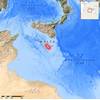
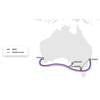
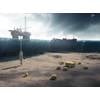
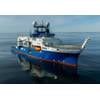
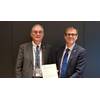










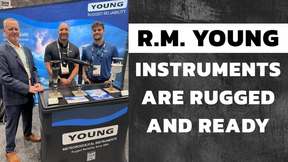
 December 2025
December 2025



